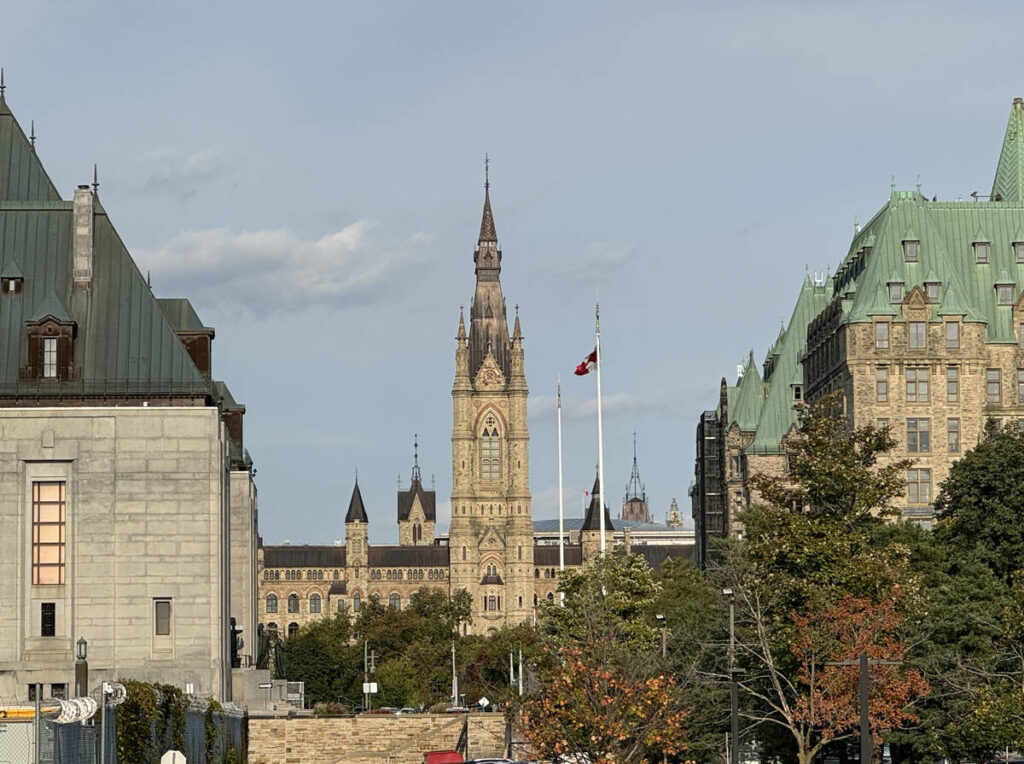Loss of markets overshadows federal election campaign

Glacier FarmMedia —Ending tariffs, or preventing any new tariffs, overshadows all other issues so far in this federal election campaign.
Trade is the number one concern affecting all sectors.
“We feel so strongly about the need to talk about trade right now and more specifically for renewal in our approach to trade,” said Greg Cherewyk, president of Pulse Canada. “We’re all seized with the U.S. right now, rightly so, but from a pulse industry perspective it’s our view that we need to renew our relationship with the rest of the world and more specifically with India and China.”
Read Also


Canadian National Railway receives arbitrator’s decision for new agreement
Canadian National Railway said on Monday it had received an arbitrator’s decision regarding the terms of its new collective agreement with the Teamsters Canada Rail Conference (TCRC), which represents about 6,000 rail workers.
Canada exports 85 per cent of its pulses and the top three markets are those countries. China has a 100 per cent tariff right now on peas, canola oil and meal, and pork, and India is always unpredictable.
Cherewyk said the next government must have much better lines of communication with major markets.
“The last one used to talk about remaining in dialogue with those with whom we don’t see eye-to-eye, but we didn’t see nearly enough of that,” he said. “It’s time to double down on trade first diplomacy. The fate of our industry really depends on that.”
He said Canada has to compartmentalize its agricultural interests so that it can advance trade while managing political tension and advocated for guardrails in trade relationships.
CUSMA renewal
Tyler Fulton, president of the Canadian Cattle Association (CCA), said about half of the beef and cattle produced in Canada are exported and mainly to the U.S.
“We prioritize the 2026 planned renewal of the Canada-U.S.-Mexico Agreement,” he said.
CCA wants a new government to move forward with a new relationships and a reset on the uncertainty of the last few months, he said.
Just before the election was called the Liberal government announced $1 million in new marketing funding to help find new markets for Canadian beef. That fell short of what is needed, Fulton said, but was a good start.
Canadian cattle producers definitely need specified risk material regulations to match those of the U.S. to eliminate the competitive disadvantage they still face. It costs the industry about $24 million each year.
Fulton said this is a barrier to growth because it prevents investment in Canadian processing capacity.
Another request from the cattle sector is cost-shared premiums for livestock price insurance so that it matches the support that grain farmers can access.
“Livestock price insurance is critical,” said Fulton. “The other aspect is some changes to AgriStability.”
He said the changes announced just before the writ dropped, which boosted payment caps under the program, were positive particularly for feeding operations operating on tight margins.
Updating SRM requirements is also a priority for the Canadian Pork Council (CPC). The CPC list of priorities includes expanding market access, strengthening infrastructure, a strong workforce and animal health and disease preparedness.
Vote for grain
The Grain Growers of Canada (GGC) launched a Vote for Grain campaign asking the parties for support for tariff-free access, permanent carbon tax cuts, reversal of the capital gains tax increase, investment in public plant breeding as well as private capital, reinstatement of extended interswitching, support for the right to repair and modernization of the Canada Grain Act.
“To support grain farmers the government of Canada must be an equal partner in creating policies that grow the sector, not hinder it,” the GGC said.
The Canadian Canola Growers Association (CCGA) wish list provides a roadmap for the next government, chiefly keeping markets open, supporting diversification and maintaining rules-based trade. The organization said domestic biofuel production is also crucial at this volatile time when export markets are uncertain.
Canola growers want investment in trade-enabling rail and port infrastructure, strengthened business risk management programs, the permanent removal of the carbon tax on farms and the planned capital gains tax increase, and support for research and innovation.
Dave Carey, vice-president of government and industry relations at CCGA, said the organization has registered as a third party with Elections Canada so it can bring farmer priorities to the forefront throughout the campaign.
Competitiveness, trade, resilience
The Canadian Federation of Agriculture’s (CFA) priorities fall under the themes of competitiveness, rules-based trade and resiliency and it has proposed actions that could be implemented within the first 100 days of a new government.
Farmers would be more competitive without the carbon tax and provisions in greenwashing legislation, CFA said. It wants agriculture to be considered a national priority and amendments to the cabinet directive on regulation so that the economic and competitive interests of producers are considered.
It asked for a permanent accelerated capital cost allowance for all classes of farm equipment to allow 100 per cent depreciation in the first year, extended interswitching and a national soils strategy.
CFA said the CUSMA should continue to support open, predictable and rules-based trade and government must protect producers’ interests.
In the area of business risk management, CFA asked for the Advance Payment Program to permanently include a $350,000 interest-free portion and that any risk management programs remain separate from sustainability objectives.
Organic support
Meanwhile, the Canadian Organic Alliance said Canada and the U.S. are each other’s largest trading partner in the organic sector and tariffs will have a huge impact.
During a webinar, My-Lien Bosch, government relations and regulatory affairs manager, said there is growing international demand that Canada could help fulfill. It currently does have organic equivalency arrangements that give it access to 34 countries in addition to the U.S.
Bosch said the sector needs more value-added products and greater investment to be able to compete with other countries.
Organic growers have asked for an organic data strategy and streamlined organic standards reviews.
Longer-term requests are an organic market development fund, which many other countries have, and research and extension support.
Cherewyk at Pulse Canada said the industry has to keep getting its message out to the candidates.
“We need this government and any future government to say that it’s prepared to have that very constructive conversation with every country that we currently have a dispute with and we want this government and any future government to say that it has our back as an agri-food sector and it has a plan to engage on everything that’s affecting the agri-food industry and to end them quickly,” he said.
Source: Farmtario.com


